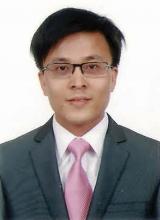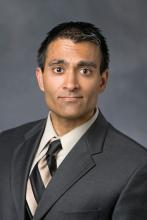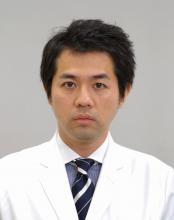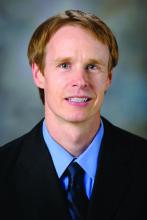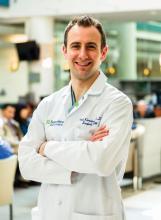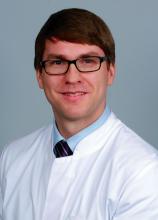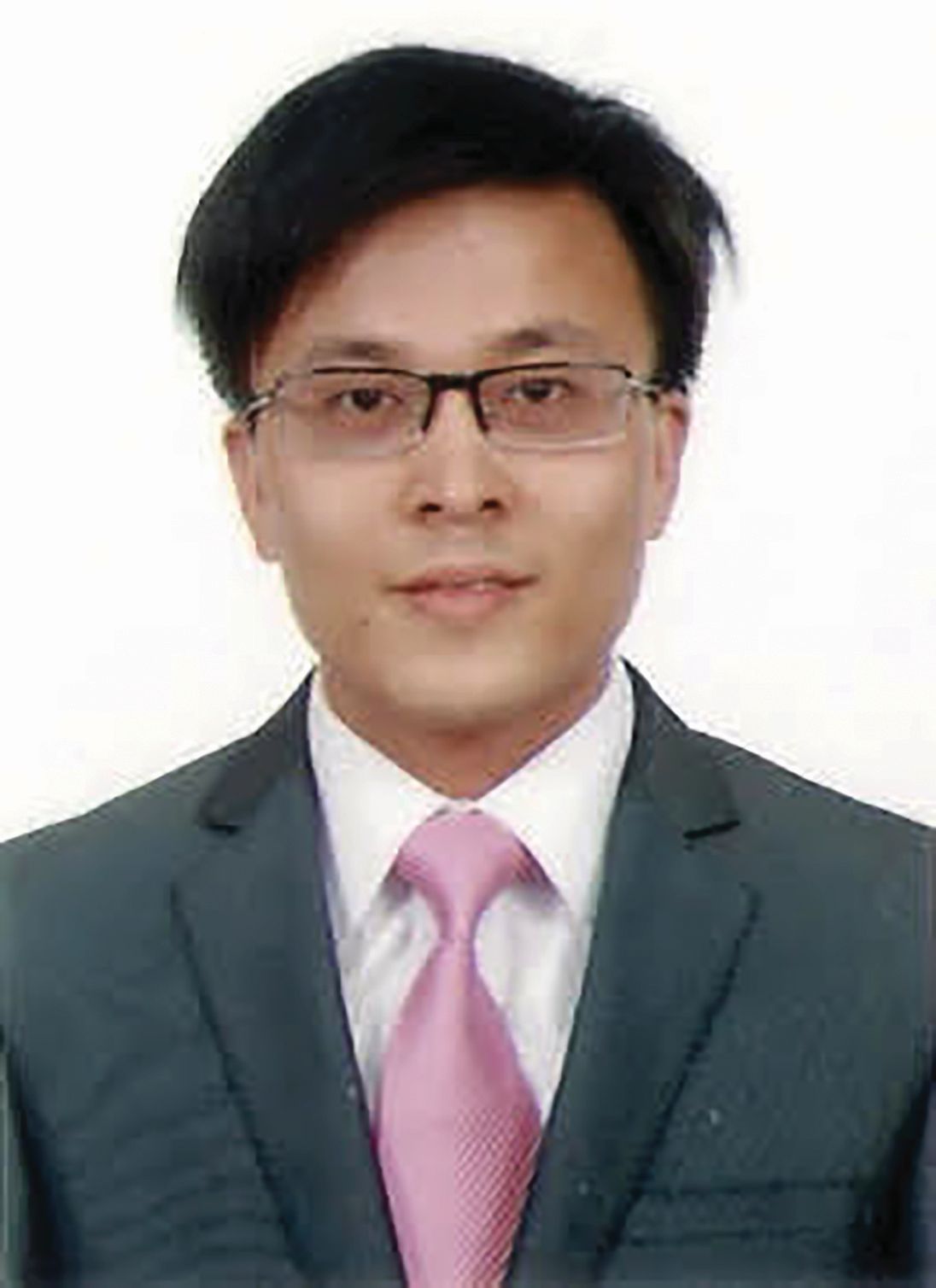User login
See VAM 2018 Presentations with VAM on Demand
VAM on Demand, a library of hundreds of presentations from the 2018 Vascular Annual Meeting is now available. Those who attended VAM can review sessions at their own pace and watch others that they missed. Those who did not attend now get the chance to learn from the sessions offered. Cost is $199 for VAM attendees and $499 for non-attendees. Access, including the ability to download materials, is good for one year. Learn more and purchase VAM on Demand here. Contact the SVS Education Department for more information at 312-334-2300, or at [email protected].
VAM on Demand, a library of hundreds of presentations from the 2018 Vascular Annual Meeting is now available. Those who attended VAM can review sessions at their own pace and watch others that they missed. Those who did not attend now get the chance to learn from the sessions offered. Cost is $199 for VAM attendees and $499 for non-attendees. Access, including the ability to download materials, is good for one year. Learn more and purchase VAM on Demand here. Contact the SVS Education Department for more information at 312-334-2300, or at [email protected].
VAM on Demand, a library of hundreds of presentations from the 2018 Vascular Annual Meeting is now available. Those who attended VAM can review sessions at their own pace and watch others that they missed. Those who did not attend now get the chance to learn from the sessions offered. Cost is $199 for VAM attendees and $499 for non-attendees. Access, including the ability to download materials, is good for one year. Learn more and purchase VAM on Demand here. Contact the SVS Education Department for more information at 312-334-2300, or at [email protected].
VRIC Set for May 13, 2019
The Society for Vascular Surgery has set the date for the 2019 Vascular Research Initiatives Conference: May 13, 2019. Mark your calendars and plan to attend this conference, which focuses on emerging vascular science. VRIC will feature abstracts, the Alexander W. Clowes Distinguished Lecture, a Translational Panel, reception and posters. As in the past, VRIC will be held in conjunction with the American Heart Association's Scientific Sessions. Those take place May 14 to 16, 2019.
The Society for Vascular Surgery has set the date for the 2019 Vascular Research Initiatives Conference: May 13, 2019. Mark your calendars and plan to attend this conference, which focuses on emerging vascular science. VRIC will feature abstracts, the Alexander W. Clowes Distinguished Lecture, a Translational Panel, reception and posters. As in the past, VRIC will be held in conjunction with the American Heart Association's Scientific Sessions. Those take place May 14 to 16, 2019.
The Society for Vascular Surgery has set the date for the 2019 Vascular Research Initiatives Conference: May 13, 2019. Mark your calendars and plan to attend this conference, which focuses on emerging vascular science. VRIC will feature abstracts, the Alexander W. Clowes Distinguished Lecture, a Translational Panel, reception and posters. As in the past, VRIC will be held in conjunction with the American Heart Association's Scientific Sessions. Those take place May 14 to 16, 2019.
Attend VAM 2019, Tour Clinics, With Scholarship
Apply for the SVS International Scholars Program by Sept. 1. Up to four qualified vascular surgeons younger than 40, from countries other than the United States or Canada, will receive $5,000 each, to attend the 2019 Vascular Annual Meeting and to visit clinical, teaching and research facilities in the U.S. and Canada. Watch a past recipient discuss the impact on her career here.
Apply for the SVS International Scholars Program by Sept. 1. Up to four qualified vascular surgeons younger than 40, from countries other than the United States or Canada, will receive $5,000 each, to attend the 2019 Vascular Annual Meeting and to visit clinical, teaching and research facilities in the U.S. and Canada. Watch a past recipient discuss the impact on her career here.
Apply for the SVS International Scholars Program by Sept. 1. Up to four qualified vascular surgeons younger than 40, from countries other than the United States or Canada, will receive $5,000 each, to attend the 2019 Vascular Annual Meeting and to visit clinical, teaching and research facilities in the U.S. and Canada. Watch a past recipient discuss the impact on her career here.
See VAM 2018 Presentations with VAM on Demand
VAM on Demand, a library of hundreds of presentations from the 2018 Vascular Annual Meeting is now available. Those who attended VAM can review sessions at their own pace and watch others that they missed. Those who did not attend now get the chance to learn from the sessions offered. Cost is $199 for VAM attendees and $499 for non-attendees. Access, including the ability to download materials, is good for one year. Learn more and purchase VAM on Demand here. Contact the SVS Education Department for more information at 312-334-2300, or at [email protected].
VAM on Demand, a library of hundreds of presentations from the 2018 Vascular Annual Meeting is now available. Those who attended VAM can review sessions at their own pace and watch others that they missed. Those who did not attend now get the chance to learn from the sessions offered. Cost is $199 for VAM attendees and $499 for non-attendees. Access, including the ability to download materials, is good for one year. Learn more and purchase VAM on Demand here. Contact the SVS Education Department for more information at 312-334-2300, or at [email protected].
VAM on Demand, a library of hundreds of presentations from the 2018 Vascular Annual Meeting is now available. Those who attended VAM can review sessions at their own pace and watch others that they missed. Those who did not attend now get the chance to learn from the sessions offered. Cost is $199 for VAM attendees and $499 for non-attendees. Access, including the ability to download materials, is good for one year. Learn more and purchase VAM on Demand here. Contact the SVS Education Department for more information at 312-334-2300, or at [email protected].
ANZ, Japan, and German Exchange Travelers for 2018 Announced
The International Relations Committee of the American College of Surgeons (ACS) sponsors three academic surgeon exchange programs to send a talented young U.S. or Canadian Fellow to the annual surgical meeting of each participating country. Afterwards, the Fellows tour several sites tailored to their specific research interests. In exchange, the College accepts fine young academic surgeon-scholars from the participating societies to attend the annual ACS Clinical Congress. This exchange is with the Royal Australasian College of Surgeons with the ACS Australia-New Zealand Chapter, the Japan Surgical Society with the ACS Japan Chapter, and the German Surgical Society with the ACS Germany Chapter.
The 2018 ANZ Exchange Fellow is Yiu Ming Ho, MB, BS, MS, FRACS, a general and colorectal surgeon University of Sydney, Australia. His recent research has been on examining personalized radiation therapy for low-risk early breast cancer. His U.S. counterpart, Mayur B. Patel, MD, MPH, FACS, is associate professor of surgery, Vanderbilt University Medical Center, TN, specializing in neurotrauma and traumatic brain injury. He attended the Annual Scientific Congress of the Royal Australasian College of Surgeons held in Sydney, Australia, in May.
This October, the College will welcome Japan Exchange Fellow Kenichiro Araki, MD, PhD, assistant professor, division of hepatobiliary and pancreatic surgery, Gunma University Graduate School of Medicine, Maebashi, Japan. Dr. Araki performs research on carcinoma of the liver and pancreas and laparoscopic hepato-pancreato-biliary (HPB) surgery. Brian D. Badgwell, MD, FACS, associate professor, MD Anderson Cancer Center, Houston, TX, attended the Japan Surgical Society meeting in Tokyo in April. Dr. Badgwell specializes in gastrointestinal surgery and acute and palliative surgical oncology. Read about Dr. Bagdwell’s experience in the July Bulletin at bit.ly/2z5UNBA
The ACS Traveling Fellow to Germany, Paul J. Karanicolas, MD, PhD, FACS, FRCSC, associate professor, HPB surgical oncology, Sunnybrook Health Sciences Centre, Toronto, ON, attended the German Surgical Society’s annual meeting in Berlin in April. His German counterpart, Carsten Kamphues, MD, PhD, a senior physician, department for general, visceral and vascular Surgery, Charité-University Medicine, Berlin, will attend the ACS Clinical Congress this year in Boston, MA, and visit several surgical sites under the guidance of his U.S. and German mentors. Dr. Kamphues’s work centers on pancreatic and gastric cancer surgery.
The International Relations Committee of the American College of Surgeons (ACS) sponsors three academic surgeon exchange programs to send a talented young U.S. or Canadian Fellow to the annual surgical meeting of each participating country. Afterwards, the Fellows tour several sites tailored to their specific research interests. In exchange, the College accepts fine young academic surgeon-scholars from the participating societies to attend the annual ACS Clinical Congress. This exchange is with the Royal Australasian College of Surgeons with the ACS Australia-New Zealand Chapter, the Japan Surgical Society with the ACS Japan Chapter, and the German Surgical Society with the ACS Germany Chapter.
The 2018 ANZ Exchange Fellow is Yiu Ming Ho, MB, BS, MS, FRACS, a general and colorectal surgeon University of Sydney, Australia. His recent research has been on examining personalized radiation therapy for low-risk early breast cancer. His U.S. counterpart, Mayur B. Patel, MD, MPH, FACS, is associate professor of surgery, Vanderbilt University Medical Center, TN, specializing in neurotrauma and traumatic brain injury. He attended the Annual Scientific Congress of the Royal Australasian College of Surgeons held in Sydney, Australia, in May.
This October, the College will welcome Japan Exchange Fellow Kenichiro Araki, MD, PhD, assistant professor, division of hepatobiliary and pancreatic surgery, Gunma University Graduate School of Medicine, Maebashi, Japan. Dr. Araki performs research on carcinoma of the liver and pancreas and laparoscopic hepato-pancreato-biliary (HPB) surgery. Brian D. Badgwell, MD, FACS, associate professor, MD Anderson Cancer Center, Houston, TX, attended the Japan Surgical Society meeting in Tokyo in April. Dr. Badgwell specializes in gastrointestinal surgery and acute and palliative surgical oncology. Read about Dr. Bagdwell’s experience in the July Bulletin at bit.ly/2z5UNBA
The ACS Traveling Fellow to Germany, Paul J. Karanicolas, MD, PhD, FACS, FRCSC, associate professor, HPB surgical oncology, Sunnybrook Health Sciences Centre, Toronto, ON, attended the German Surgical Society’s annual meeting in Berlin in April. His German counterpart, Carsten Kamphues, MD, PhD, a senior physician, department for general, visceral and vascular Surgery, Charité-University Medicine, Berlin, will attend the ACS Clinical Congress this year in Boston, MA, and visit several surgical sites under the guidance of his U.S. and German mentors. Dr. Kamphues’s work centers on pancreatic and gastric cancer surgery.
The International Relations Committee of the American College of Surgeons (ACS) sponsors three academic surgeon exchange programs to send a talented young U.S. or Canadian Fellow to the annual surgical meeting of each participating country. Afterwards, the Fellows tour several sites tailored to their specific research interests. In exchange, the College accepts fine young academic surgeon-scholars from the participating societies to attend the annual ACS Clinical Congress. This exchange is with the Royal Australasian College of Surgeons with the ACS Australia-New Zealand Chapter, the Japan Surgical Society with the ACS Japan Chapter, and the German Surgical Society with the ACS Germany Chapter.
The 2018 ANZ Exchange Fellow is Yiu Ming Ho, MB, BS, MS, FRACS, a general and colorectal surgeon University of Sydney, Australia. His recent research has been on examining personalized radiation therapy for low-risk early breast cancer. His U.S. counterpart, Mayur B. Patel, MD, MPH, FACS, is associate professor of surgery, Vanderbilt University Medical Center, TN, specializing in neurotrauma and traumatic brain injury. He attended the Annual Scientific Congress of the Royal Australasian College of Surgeons held in Sydney, Australia, in May.
This October, the College will welcome Japan Exchange Fellow Kenichiro Araki, MD, PhD, assistant professor, division of hepatobiliary and pancreatic surgery, Gunma University Graduate School of Medicine, Maebashi, Japan. Dr. Araki performs research on carcinoma of the liver and pancreas and laparoscopic hepato-pancreato-biliary (HPB) surgery. Brian D. Badgwell, MD, FACS, associate professor, MD Anderson Cancer Center, Houston, TX, attended the Japan Surgical Society meeting in Tokyo in April. Dr. Badgwell specializes in gastrointestinal surgery and acute and palliative surgical oncology. Read about Dr. Bagdwell’s experience in the July Bulletin at bit.ly/2z5UNBA
The ACS Traveling Fellow to Germany, Paul J. Karanicolas, MD, PhD, FACS, FRCSC, associate professor, HPB surgical oncology, Sunnybrook Health Sciences Centre, Toronto, ON, attended the German Surgical Society’s annual meeting in Berlin in April. His German counterpart, Carsten Kamphues, MD, PhD, a senior physician, department for general, visceral and vascular Surgery, Charité-University Medicine, Berlin, will attend the ACS Clinical Congress this year in Boston, MA, and visit several surgical sites under the guidance of his U.S. and German mentors. Dr. Kamphues’s work centers on pancreatic and gastric cancer surgery.
CoC Grants Outstanding Achievement Award to 16 Cancer Care Facilitiesteaser
The Commission on Cancer (CoC) of the American College of Surgeons (ACS) has granted its year-end 2017 Outstanding Achievement Award to a select group of 16 accredited cancer programs throughout the U.S. Award criteria were based on qualitative and quantitative surveys of cancer programs conducted in the second half of 2017.
The purpose of the award is to raise the bar on quality cancer care, with the ultimate goal of increasing awareness about quality care choices among cancer patients and their loved ones. In addition, the award is intended to accomplish the following:
• Recognize those cancer programs that achieve excellence in providing quality care to cancer patients
• Motivate other cancer programs to work toward improving their level of care
• Facilitate a dialogue between award recipients and health care professionals at other cancer facilities for the purpose of sharing best practices
• Encourage honorees to serve as quality-care resources to other cancer programs
The 16 award-winning cancer care programs represent approximately 7 percent of programs surveyed by the CoC July 1–December 31, 2017. “These cancer programs currently represent the best of the best when it comes to cancer care,” said Lawrence N. Shulman, MD, FACP, Chair of the CoC. “Each of these facilities is not just meeting nationally recognized standards for the delivery of quality cancer care, they are exceeding them.”
Visit the ACS website for a list of these award-winning cancer programs at facs.org/quality-programs/cancer/coc/info/outstanding/2017-part-2.
The Commission on Cancer (CoC) of the American College of Surgeons (ACS) has granted its year-end 2017 Outstanding Achievement Award to a select group of 16 accredited cancer programs throughout the U.S. Award criteria were based on qualitative and quantitative surveys of cancer programs conducted in the second half of 2017.
The purpose of the award is to raise the bar on quality cancer care, with the ultimate goal of increasing awareness about quality care choices among cancer patients and their loved ones. In addition, the award is intended to accomplish the following:
• Recognize those cancer programs that achieve excellence in providing quality care to cancer patients
• Motivate other cancer programs to work toward improving their level of care
• Facilitate a dialogue between award recipients and health care professionals at other cancer facilities for the purpose of sharing best practices
• Encourage honorees to serve as quality-care resources to other cancer programs
The 16 award-winning cancer care programs represent approximately 7 percent of programs surveyed by the CoC July 1–December 31, 2017. “These cancer programs currently represent the best of the best when it comes to cancer care,” said Lawrence N. Shulman, MD, FACP, Chair of the CoC. “Each of these facilities is not just meeting nationally recognized standards for the delivery of quality cancer care, they are exceeding them.”
Visit the ACS website for a list of these award-winning cancer programs at facs.org/quality-programs/cancer/coc/info/outstanding/2017-part-2.
The Commission on Cancer (CoC) of the American College of Surgeons (ACS) has granted its year-end 2017 Outstanding Achievement Award to a select group of 16 accredited cancer programs throughout the U.S. Award criteria were based on qualitative and quantitative surveys of cancer programs conducted in the second half of 2017.
The purpose of the award is to raise the bar on quality cancer care, with the ultimate goal of increasing awareness about quality care choices among cancer patients and their loved ones. In addition, the award is intended to accomplish the following:
• Recognize those cancer programs that achieve excellence in providing quality care to cancer patients
• Motivate other cancer programs to work toward improving their level of care
• Facilitate a dialogue between award recipients and health care professionals at other cancer facilities for the purpose of sharing best practices
• Encourage honorees to serve as quality-care resources to other cancer programs
The 16 award-winning cancer care programs represent approximately 7 percent of programs surveyed by the CoC July 1–December 31, 2017. “These cancer programs currently represent the best of the best when it comes to cancer care,” said Lawrence N. Shulman, MD, FACP, Chair of the CoC. “Each of these facilities is not just meeting nationally recognized standards for the delivery of quality cancer care, they are exceeding them.”
Visit the ACS website for a list of these award-winning cancer programs at facs.org/quality-programs/cancer/coc/info/outstanding/2017-part-2.
Dr. Steven Rosenberg Receives the 2018 ACS Jacobson Innovation Award
The American College of Surgeons (ACS) presented the 2018 Jacobson Innovation Award to surgical oncologist Steven A. Rosenberg, MD, PhD, at a dinner held in his honor in Chicago, IL, on June 8. Dr. Rosenberg is chief of the surgery branch at the National Cancer Institute (NCI), part of the National Institutes of Health, in Bethesda, MD; and a professor of surgery at the Uniformed Services University of Health Sciences, Bethesda, and at the George Washington University School of Medicine and Health Sciences, Washington, DC.
The prestigious Jacobson Innovation Award honors living surgeons who have been innovators of a new development or technique in any field of surgery and is made possible through a gift from Julius H. Jacobson II, MD, FACS, and his wife Joan. Dr. Jacobson is a general vascular surgeon known for his pioneering work in the development of microsurgery.
Dr. Rosenberg was honored with this international surgical award for his pioneering role in the development of immunotherapy and gene therapy. When Dr. Rosenberg began his work in immunotherapy in the late 1970s, little was known about T lymphocyte function in cancer, and there was no convincing evidence that any immune reaction existed in patients against their cancers. Despite this dearth of knowledge, Dr. Rosenberg developed the first effective immunotherapies for selected patients with advanced cancer and was the first to successfully insert foreign genes into humans. His studies of cell transfer immunotherapy resulted in durable complete remissions in patients with metastatic melanoma. Additionally, his studies of the adoptive transfer of genetically modified lymphocytes resulted in the regression of metastatic cancer in patients with melanoma, sarcomas, and lymphomas.
In his current role at the NCI, Dr. Rosenberg oversees the surgery branch’s extensive clinical program, which is aimed at translating scientific advances into effective immunotherapies for cancer patients. Dr. Rosenberg’s current research is focused on defining the host immune response of patients to their cancers. These studies emphasize the ability of human lymphocytes to recognize unique cancer antigens and the identification of anti-tumor T cell receptors that can be exploited to develop new cell transfer immunotherapies for the treatment of cancer patients. Dr. Rosenberg is currently an investigator in 14 clinical trials being conducted through the NCI’s Center for Cancer Research.
Dr. Rosenberg has received numerous awards throughout his distinguished career. In 1981, he received a Meritorious Service Medal from the U.S. Public Health Service for pioneering work in the treatment of soft tissue sarcomas and osteogenic sarcoma. He received that honor again in 1986 for his excellence and leadership in research and clinical investigation relating to the cellular biology and immunology of cancer treatment. Dr. Rosenberg also twice received the Armand Hammer Cancer Prize, in 1985 and 1988, for his cancer research accomplishments. In 1991, he received the highest honor given by the American Society of Clinical Oncology, the Karnofsky Prize. He was awarded the Flance-Karl Award, the highest honor given by the American Surgical Association, in 2002. In 2005, he received the Richard V. Smalley, MD, Memorial Award, which is the highest honor given by the International Society for Biological Therapy of Cancer. Most recently, he was named the recipient of the Medal of Honor from the American Cancer Society in 2015.
Dr. Rosenberg is currently a member of the American Society of Clinical Oncology and has served on its board of directors. He also is a member of the National Academy of Medicine, the Society of University Surgeons, the American Surgical Association, the American Association for Cancer Research, and the American Association of Immunologists, among others. He has authored more than 1,100 articles in scientific literature covering various aspects of cancer research, as well as eight books. He was the editor-in-chief of the Journal of Immunotherapy from 1990 to 1995, and again from 2000 to the present.
For a list of previous Jacobson Innovation Award winners, visit the ACS website at facs.org/about-acs/ governance/acs-committees/honorscommittee/jacobson-list.
The American College of Surgeons (ACS) presented the 2018 Jacobson Innovation Award to surgical oncologist Steven A. Rosenberg, MD, PhD, at a dinner held in his honor in Chicago, IL, on June 8. Dr. Rosenberg is chief of the surgery branch at the National Cancer Institute (NCI), part of the National Institutes of Health, in Bethesda, MD; and a professor of surgery at the Uniformed Services University of Health Sciences, Bethesda, and at the George Washington University School of Medicine and Health Sciences, Washington, DC.
The prestigious Jacobson Innovation Award honors living surgeons who have been innovators of a new development or technique in any field of surgery and is made possible through a gift from Julius H. Jacobson II, MD, FACS, and his wife Joan. Dr. Jacobson is a general vascular surgeon known for his pioneering work in the development of microsurgery.
Dr. Rosenberg was honored with this international surgical award for his pioneering role in the development of immunotherapy and gene therapy. When Dr. Rosenberg began his work in immunotherapy in the late 1970s, little was known about T lymphocyte function in cancer, and there was no convincing evidence that any immune reaction existed in patients against their cancers. Despite this dearth of knowledge, Dr. Rosenberg developed the first effective immunotherapies for selected patients with advanced cancer and was the first to successfully insert foreign genes into humans. His studies of cell transfer immunotherapy resulted in durable complete remissions in patients with metastatic melanoma. Additionally, his studies of the adoptive transfer of genetically modified lymphocytes resulted in the regression of metastatic cancer in patients with melanoma, sarcomas, and lymphomas.
In his current role at the NCI, Dr. Rosenberg oversees the surgery branch’s extensive clinical program, which is aimed at translating scientific advances into effective immunotherapies for cancer patients. Dr. Rosenberg’s current research is focused on defining the host immune response of patients to their cancers. These studies emphasize the ability of human lymphocytes to recognize unique cancer antigens and the identification of anti-tumor T cell receptors that can be exploited to develop new cell transfer immunotherapies for the treatment of cancer patients. Dr. Rosenberg is currently an investigator in 14 clinical trials being conducted through the NCI’s Center for Cancer Research.
Dr. Rosenberg has received numerous awards throughout his distinguished career. In 1981, he received a Meritorious Service Medal from the U.S. Public Health Service for pioneering work in the treatment of soft tissue sarcomas and osteogenic sarcoma. He received that honor again in 1986 for his excellence and leadership in research and clinical investigation relating to the cellular biology and immunology of cancer treatment. Dr. Rosenberg also twice received the Armand Hammer Cancer Prize, in 1985 and 1988, for his cancer research accomplishments. In 1991, he received the highest honor given by the American Society of Clinical Oncology, the Karnofsky Prize. He was awarded the Flance-Karl Award, the highest honor given by the American Surgical Association, in 2002. In 2005, he received the Richard V. Smalley, MD, Memorial Award, which is the highest honor given by the International Society for Biological Therapy of Cancer. Most recently, he was named the recipient of the Medal of Honor from the American Cancer Society in 2015.
Dr. Rosenberg is currently a member of the American Society of Clinical Oncology and has served on its board of directors. He also is a member of the National Academy of Medicine, the Society of University Surgeons, the American Surgical Association, the American Association for Cancer Research, and the American Association of Immunologists, among others. He has authored more than 1,100 articles in scientific literature covering various aspects of cancer research, as well as eight books. He was the editor-in-chief of the Journal of Immunotherapy from 1990 to 1995, and again from 2000 to the present.
For a list of previous Jacobson Innovation Award winners, visit the ACS website at facs.org/about-acs/ governance/acs-committees/honorscommittee/jacobson-list.
The American College of Surgeons (ACS) presented the 2018 Jacobson Innovation Award to surgical oncologist Steven A. Rosenberg, MD, PhD, at a dinner held in his honor in Chicago, IL, on June 8. Dr. Rosenberg is chief of the surgery branch at the National Cancer Institute (NCI), part of the National Institutes of Health, in Bethesda, MD; and a professor of surgery at the Uniformed Services University of Health Sciences, Bethesda, and at the George Washington University School of Medicine and Health Sciences, Washington, DC.
The prestigious Jacobson Innovation Award honors living surgeons who have been innovators of a new development or technique in any field of surgery and is made possible through a gift from Julius H. Jacobson II, MD, FACS, and his wife Joan. Dr. Jacobson is a general vascular surgeon known for his pioneering work in the development of microsurgery.
Dr. Rosenberg was honored with this international surgical award for his pioneering role in the development of immunotherapy and gene therapy. When Dr. Rosenberg began his work in immunotherapy in the late 1970s, little was known about T lymphocyte function in cancer, and there was no convincing evidence that any immune reaction existed in patients against their cancers. Despite this dearth of knowledge, Dr. Rosenberg developed the first effective immunotherapies for selected patients with advanced cancer and was the first to successfully insert foreign genes into humans. His studies of cell transfer immunotherapy resulted in durable complete remissions in patients with metastatic melanoma. Additionally, his studies of the adoptive transfer of genetically modified lymphocytes resulted in the regression of metastatic cancer in patients with melanoma, sarcomas, and lymphomas.
In his current role at the NCI, Dr. Rosenberg oversees the surgery branch’s extensive clinical program, which is aimed at translating scientific advances into effective immunotherapies for cancer patients. Dr. Rosenberg’s current research is focused on defining the host immune response of patients to their cancers. These studies emphasize the ability of human lymphocytes to recognize unique cancer antigens and the identification of anti-tumor T cell receptors that can be exploited to develop new cell transfer immunotherapies for the treatment of cancer patients. Dr. Rosenberg is currently an investigator in 14 clinical trials being conducted through the NCI’s Center for Cancer Research.
Dr. Rosenberg has received numerous awards throughout his distinguished career. In 1981, he received a Meritorious Service Medal from the U.S. Public Health Service for pioneering work in the treatment of soft tissue sarcomas and osteogenic sarcoma. He received that honor again in 1986 for his excellence and leadership in research and clinical investigation relating to the cellular biology and immunology of cancer treatment. Dr. Rosenberg also twice received the Armand Hammer Cancer Prize, in 1985 and 1988, for his cancer research accomplishments. In 1991, he received the highest honor given by the American Society of Clinical Oncology, the Karnofsky Prize. He was awarded the Flance-Karl Award, the highest honor given by the American Surgical Association, in 2002. In 2005, he received the Richard V. Smalley, MD, Memorial Award, which is the highest honor given by the International Society for Biological Therapy of Cancer. Most recently, he was named the recipient of the Medal of Honor from the American Cancer Society in 2015.
Dr. Rosenberg is currently a member of the American Society of Clinical Oncology and has served on its board of directors. He also is a member of the National Academy of Medicine, the Society of University Surgeons, the American Surgical Association, the American Association for Cancer Research, and the American Association of Immunologists, among others. He has authored more than 1,100 articles in scientific literature covering various aspects of cancer research, as well as eight books. He was the editor-in-chief of the Journal of Immunotherapy from 1990 to 1995, and again from 2000 to the present.
For a list of previous Jacobson Innovation Award winners, visit the ACS website at facs.org/about-acs/ governance/acs-committees/honorscommittee/jacobson-list.
Register for 2018 ACS-AEI Postgraduate Course by August 31
Attend the Annual American College of Surgeons Accredited Educational Institutes (ACS-AEI) Postgraduate Course, Novice to Expert: Let’s Get It Done, September 14–15 at the Mayo Clinic Multidisciplinary Simulation Center, Rochester, MN, to learn new techniques in simulation education that will meet the needs of all levels of learners, from novice to expert. Succinct presentations and hands-on activities at the simulation center will expose attendees to useful ideas, initiatives, and best practices that can be incorporated at their respective centers. The deadline to register for the course is August 31.
Sessions on Friday, September 14, will take place at the host hotel, the DoubleTree by Hilton Rochester—Mayo Clinic Area, and will feature simulation presentations that address learners at the Novice, Advanced Beginner, Competent, Proficient, and Expert levels. The day will end with a special cocktail reception and dinner at the historic Mayo Foundation House, where you will enjoy networking and making connections with fellow attendees for more relevant research and educational efforts. Saturday, September 15, will begin with a tour of the simulation center, followed by interactive activities that showcase Mayo’s strengths, including the Surgical X-Games, low-fidelity models, assessment, Maintenance of Certification for anesthesiology, and more. View the complete course agenda at facs.org/~/media/files/education/aei/pg_course_agenda_2018.ashx.
Registrants are offered a special booking rate at the DoubleTree by Hilton Rochester—Mayo Clinic Area. Reservations may be made by booking online at bit.ly/2mviB8Q or by calling 507-281-8000 and mentioning the American College of Surgeons September 2018 Meeting. Hotel reservations must be made by August 22 to qualify for the group rate.
Visit the postgraduate course web page at facs.org/education/accreditation/aei/pgcourse for more details and to register. Contact Cathy Sormalis at [email protected] with questions.
Attend the Annual American College of Surgeons Accredited Educational Institutes (ACS-AEI) Postgraduate Course, Novice to Expert: Let’s Get It Done, September 14–15 at the Mayo Clinic Multidisciplinary Simulation Center, Rochester, MN, to learn new techniques in simulation education that will meet the needs of all levels of learners, from novice to expert. Succinct presentations and hands-on activities at the simulation center will expose attendees to useful ideas, initiatives, and best practices that can be incorporated at their respective centers. The deadline to register for the course is August 31.
Sessions on Friday, September 14, will take place at the host hotel, the DoubleTree by Hilton Rochester—Mayo Clinic Area, and will feature simulation presentations that address learners at the Novice, Advanced Beginner, Competent, Proficient, and Expert levels. The day will end with a special cocktail reception and dinner at the historic Mayo Foundation House, where you will enjoy networking and making connections with fellow attendees for more relevant research and educational efforts. Saturday, September 15, will begin with a tour of the simulation center, followed by interactive activities that showcase Mayo’s strengths, including the Surgical X-Games, low-fidelity models, assessment, Maintenance of Certification for anesthesiology, and more. View the complete course agenda at facs.org/~/media/files/education/aei/pg_course_agenda_2018.ashx.
Registrants are offered a special booking rate at the DoubleTree by Hilton Rochester—Mayo Clinic Area. Reservations may be made by booking online at bit.ly/2mviB8Q or by calling 507-281-8000 and mentioning the American College of Surgeons September 2018 Meeting. Hotel reservations must be made by August 22 to qualify for the group rate.
Visit the postgraduate course web page at facs.org/education/accreditation/aei/pgcourse for more details and to register. Contact Cathy Sormalis at [email protected] with questions.
Attend the Annual American College of Surgeons Accredited Educational Institutes (ACS-AEI) Postgraduate Course, Novice to Expert: Let’s Get It Done, September 14–15 at the Mayo Clinic Multidisciplinary Simulation Center, Rochester, MN, to learn new techniques in simulation education that will meet the needs of all levels of learners, from novice to expert. Succinct presentations and hands-on activities at the simulation center will expose attendees to useful ideas, initiatives, and best practices that can be incorporated at their respective centers. The deadline to register for the course is August 31.
Sessions on Friday, September 14, will take place at the host hotel, the DoubleTree by Hilton Rochester—Mayo Clinic Area, and will feature simulation presentations that address learners at the Novice, Advanced Beginner, Competent, Proficient, and Expert levels. The day will end with a special cocktail reception and dinner at the historic Mayo Foundation House, where you will enjoy networking and making connections with fellow attendees for more relevant research and educational efforts. Saturday, September 15, will begin with a tour of the simulation center, followed by interactive activities that showcase Mayo’s strengths, including the Surgical X-Games, low-fidelity models, assessment, Maintenance of Certification for anesthesiology, and more. View the complete course agenda at facs.org/~/media/files/education/aei/pg_course_agenda_2018.ashx.
Registrants are offered a special booking rate at the DoubleTree by Hilton Rochester—Mayo Clinic Area. Reservations may be made by booking online at bit.ly/2mviB8Q or by calling 507-281-8000 and mentioning the American College of Surgeons September 2018 Meeting. Hotel reservations must be made by August 22 to qualify for the group rate.
Visit the postgraduate course web page at facs.org/education/accreditation/aei/pgcourse for more details and to register. Contact Cathy Sormalis at [email protected] with questions.
Inaugural recipient of ACS Surgical History Group Archives Fellowship announced
The Surgical History Group (SHG) of the American College of Surgeons (ACS) has awarded the inaugural Archives fellowship to David E. Clark, MD, FACS, of Portland, ME, to fund his research project, How the Great War Accelerated the Transfer of Global Leadership from Europe to America, and How the Developing ACS Helped Enable This Transition.
This annual fellowship begins July 1, and Dr. Clark will present his research findings at the SHG Breakfast Meeting at the ACS Clinical Congress 2019 in San Francisco, CA. Dr. Clark will receive a $2,000 stipend funded by the ACS Archives and the ACS Foundation’s Archives Fund.
The SHG fellowship supports research in surgical history that uses the resources of the ACS Archives, which includes records of the ACS in Chicago, IL, and the Orr Collection in Omaha, NE. Nine applicants submitted proposals on a variety of research topics this year, and applications were evaluated by the Archives Fellowship Selection Committee of the SHG.
For more information about the ACS Archives and the SHG, visit the ACS Archives web page at facs.org/about-acs/archives.
The Archives Fund was established to support the mission and operations of the ACS Archives. Direct contributions to support the Archives Fund are welcome. Fellows wishing to make tax-deductible gifts to fund this program are encouraged to contact the ACS Foundation at 312-202-5338.
The Surgical History Group (SHG) of the American College of Surgeons (ACS) has awarded the inaugural Archives fellowship to David E. Clark, MD, FACS, of Portland, ME, to fund his research project, How the Great War Accelerated the Transfer of Global Leadership from Europe to America, and How the Developing ACS Helped Enable This Transition.
This annual fellowship begins July 1, and Dr. Clark will present his research findings at the SHG Breakfast Meeting at the ACS Clinical Congress 2019 in San Francisco, CA. Dr. Clark will receive a $2,000 stipend funded by the ACS Archives and the ACS Foundation’s Archives Fund.
The SHG fellowship supports research in surgical history that uses the resources of the ACS Archives, which includes records of the ACS in Chicago, IL, and the Orr Collection in Omaha, NE. Nine applicants submitted proposals on a variety of research topics this year, and applications were evaluated by the Archives Fellowship Selection Committee of the SHG.
For more information about the ACS Archives and the SHG, visit the ACS Archives web page at facs.org/about-acs/archives.
The Archives Fund was established to support the mission and operations of the ACS Archives. Direct contributions to support the Archives Fund are welcome. Fellows wishing to make tax-deductible gifts to fund this program are encouraged to contact the ACS Foundation at 312-202-5338.
The Surgical History Group (SHG) of the American College of Surgeons (ACS) has awarded the inaugural Archives fellowship to David E. Clark, MD, FACS, of Portland, ME, to fund his research project, How the Great War Accelerated the Transfer of Global Leadership from Europe to America, and How the Developing ACS Helped Enable This Transition.
This annual fellowship begins July 1, and Dr. Clark will present his research findings at the SHG Breakfast Meeting at the ACS Clinical Congress 2019 in San Francisco, CA. Dr. Clark will receive a $2,000 stipend funded by the ACS Archives and the ACS Foundation’s Archives Fund.
The SHG fellowship supports research in surgical history that uses the resources of the ACS Archives, which includes records of the ACS in Chicago, IL, and the Orr Collection in Omaha, NE. Nine applicants submitted proposals on a variety of research topics this year, and applications were evaluated by the Archives Fellowship Selection Committee of the SHG.
For more information about the ACS Archives and the SHG, visit the ACS Archives web page at facs.org/about-acs/archives.
The Archives Fund was established to support the mission and operations of the ACS Archives. Direct contributions to support the Archives Fund are welcome. Fellows wishing to make tax-deductible gifts to fund this program are encouraged to contact the ACS Foundation at 312-202-5338.
George H.A. Clowes, MD, FACS Memorial Career Development Awardee for 2018 announced
The American College of Surgeons (ACS) has announced that Luke Funk, MD, MPH, FACS, of Madison, WI, has been selected to receive the 2018 George H.A. Clowes, MD, FACS Memorial Career Development Award. Dr. Funk is an assistant professor in the department of surgery at University of Wisconsin-Madison. His awarded research project is Identifying and Addressing Barriers to Severe Obesity Care.
Dr. Funk anticipates that his research will help him to complete a program of research focused on identifying and addressing barriers to severe obesity care and bariatric surgery. The primary objectives of his study are to better understand how severely obese patients and their primary care providers (PCPs) make obesity treatment decisions and to pilot-test an educational tool designed to improve shared decision-making and optimize treatment for severely obese patients.
The requirements for this award are posted to the ACS website at facs.org/member-services/scholarships/research/acsclowes.
The American College of Surgeons (ACS) has announced that Luke Funk, MD, MPH, FACS, of Madison, WI, has been selected to receive the 2018 George H.A. Clowes, MD, FACS Memorial Career Development Award. Dr. Funk is an assistant professor in the department of surgery at University of Wisconsin-Madison. His awarded research project is Identifying and Addressing Barriers to Severe Obesity Care.
Dr. Funk anticipates that his research will help him to complete a program of research focused on identifying and addressing barriers to severe obesity care and bariatric surgery. The primary objectives of his study are to better understand how severely obese patients and their primary care providers (PCPs) make obesity treatment decisions and to pilot-test an educational tool designed to improve shared decision-making and optimize treatment for severely obese patients.
The requirements for this award are posted to the ACS website at facs.org/member-services/scholarships/research/acsclowes.
The American College of Surgeons (ACS) has announced that Luke Funk, MD, MPH, FACS, of Madison, WI, has been selected to receive the 2018 George H.A. Clowes, MD, FACS Memorial Career Development Award. Dr. Funk is an assistant professor in the department of surgery at University of Wisconsin-Madison. His awarded research project is Identifying and Addressing Barriers to Severe Obesity Care.
Dr. Funk anticipates that his research will help him to complete a program of research focused on identifying and addressing barriers to severe obesity care and bariatric surgery. The primary objectives of his study are to better understand how severely obese patients and their primary care providers (PCPs) make obesity treatment decisions and to pilot-test an educational tool designed to improve shared decision-making and optimize treatment for severely obese patients.
The requirements for this award are posted to the ACS website at facs.org/member-services/scholarships/research/acsclowes.
